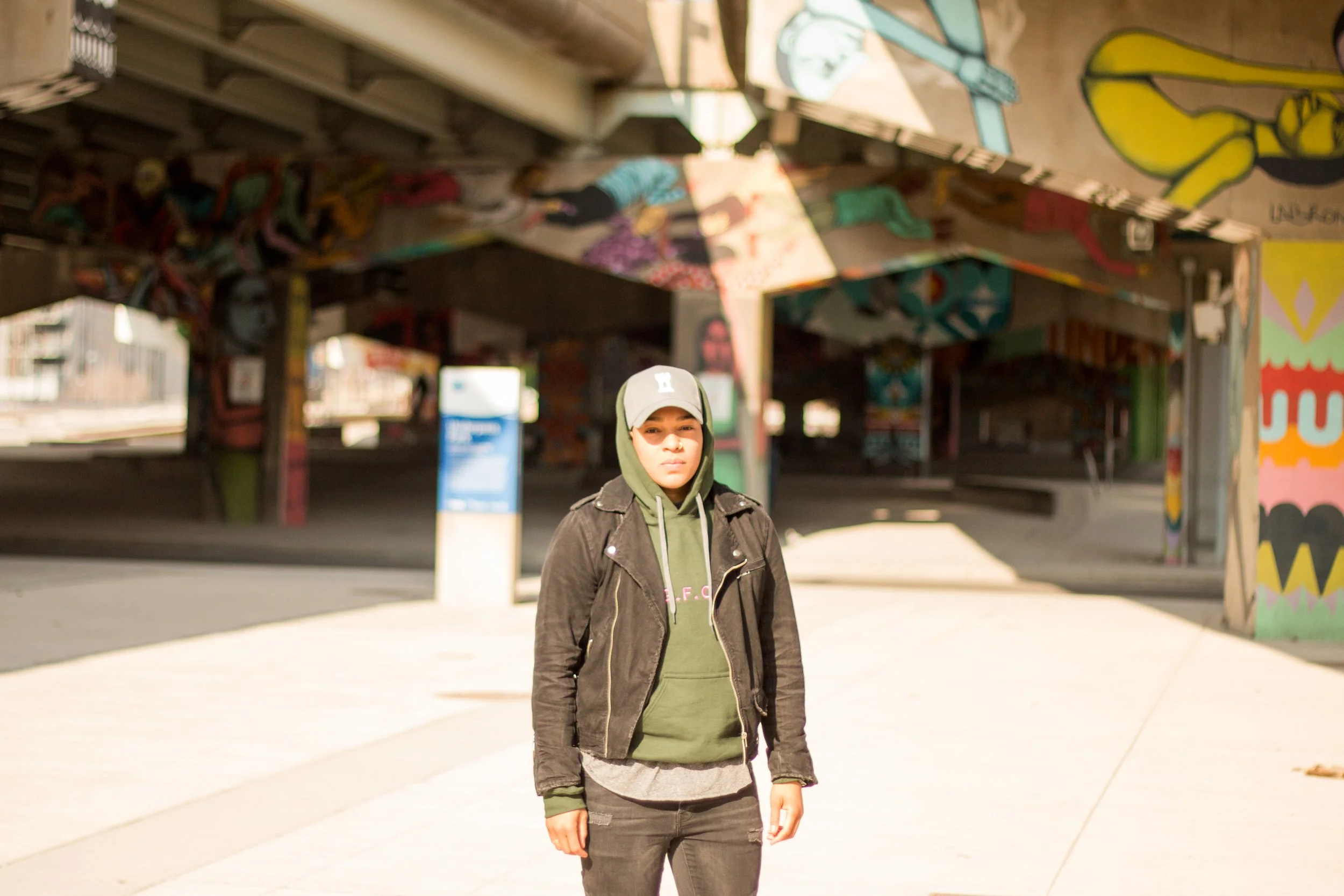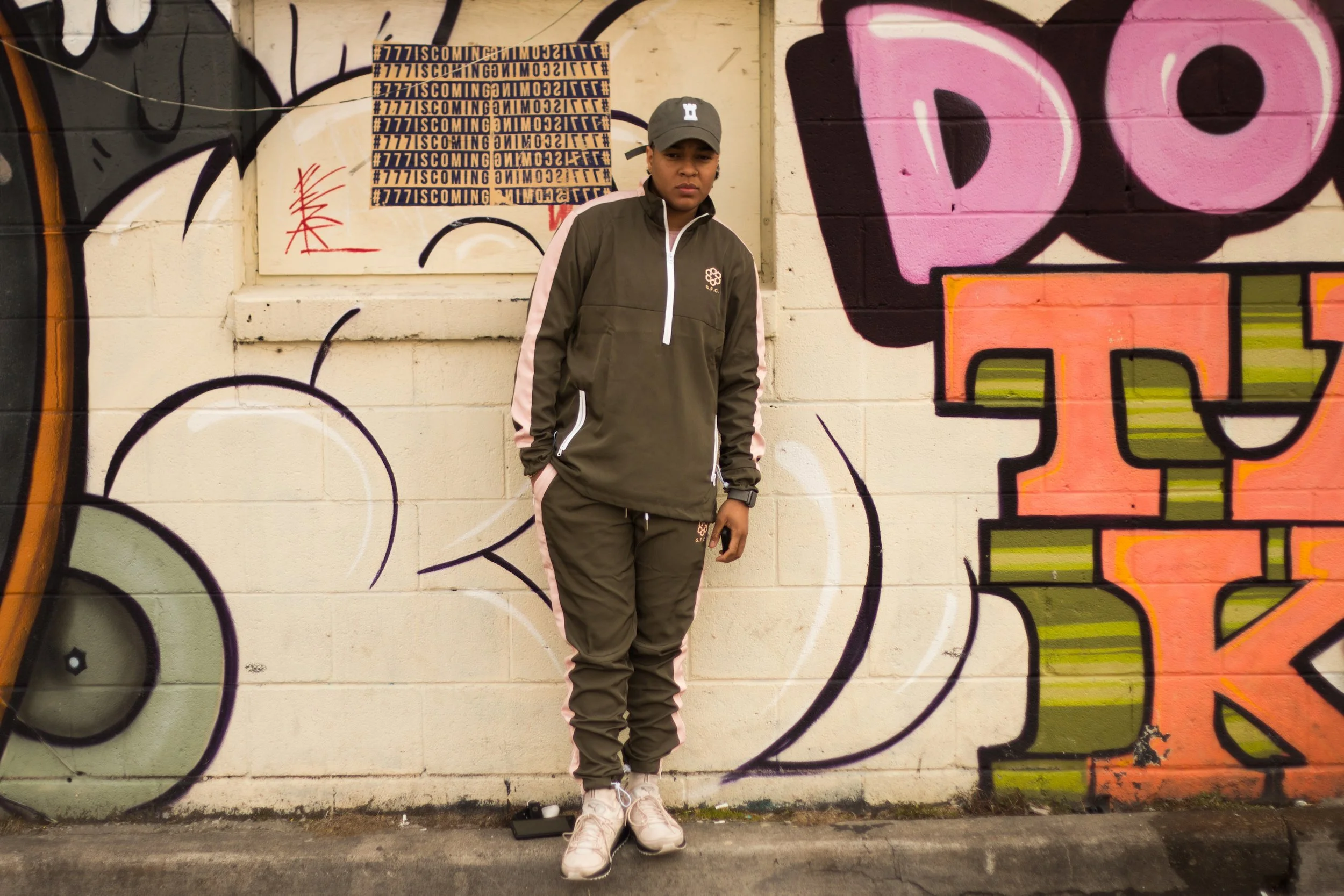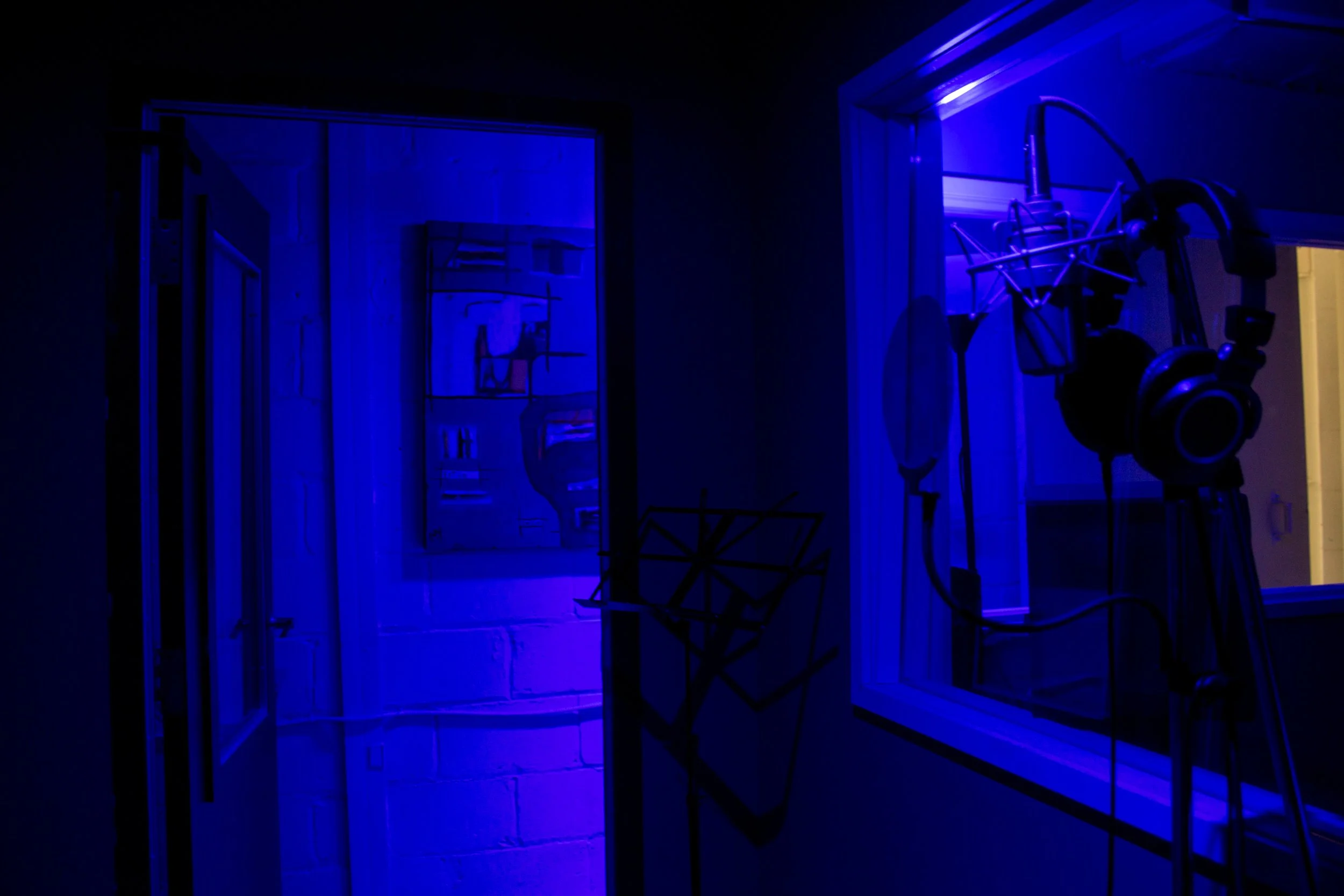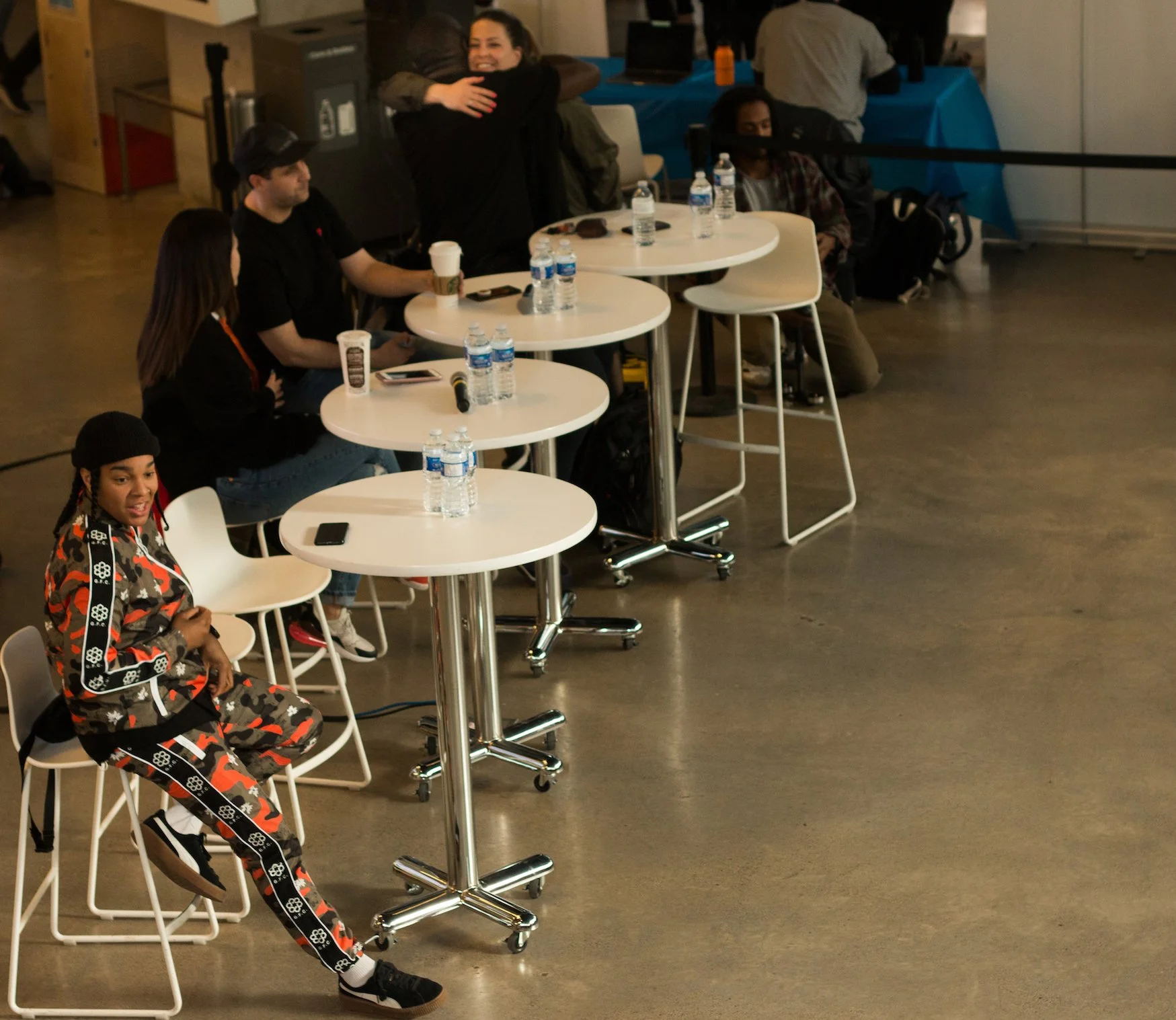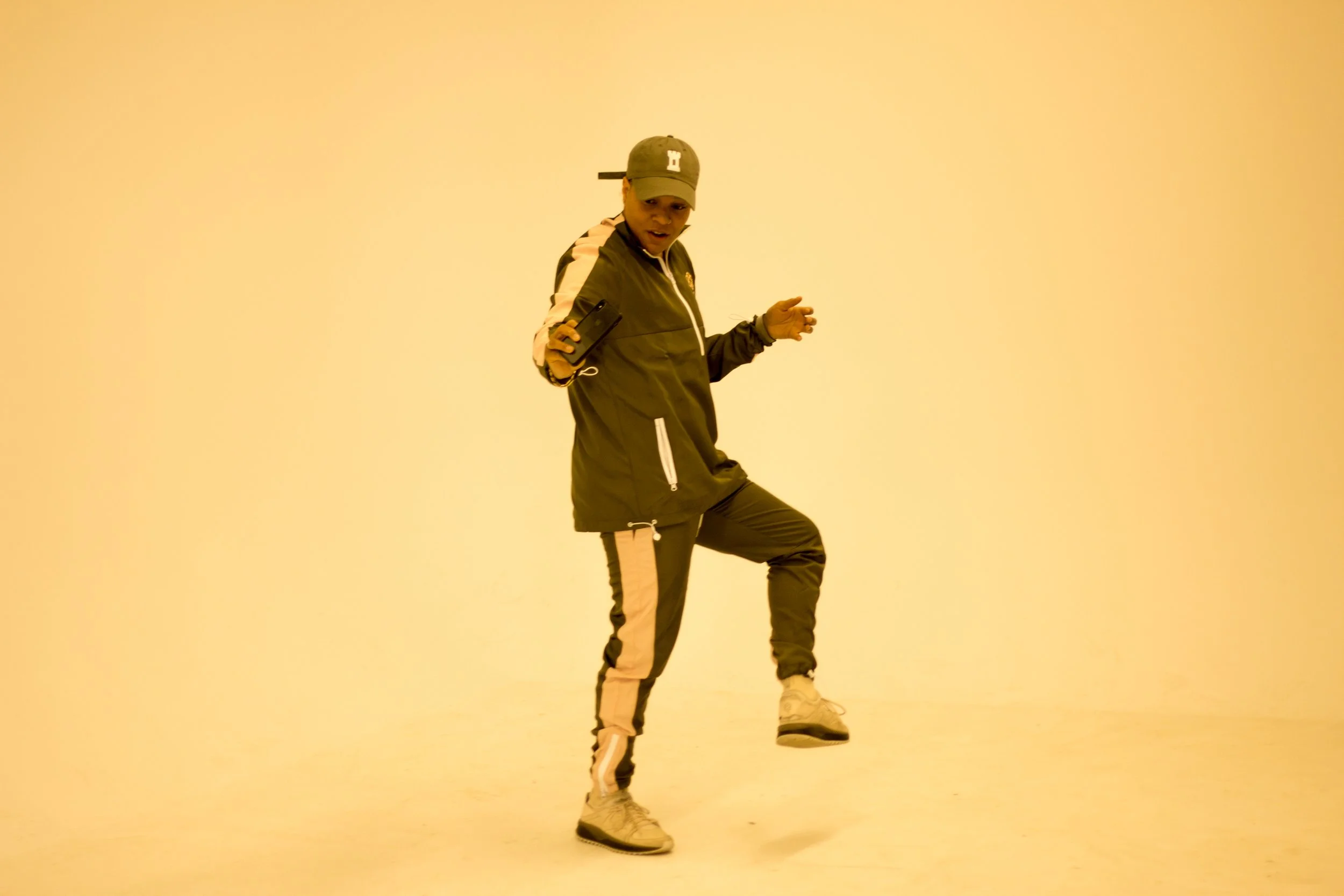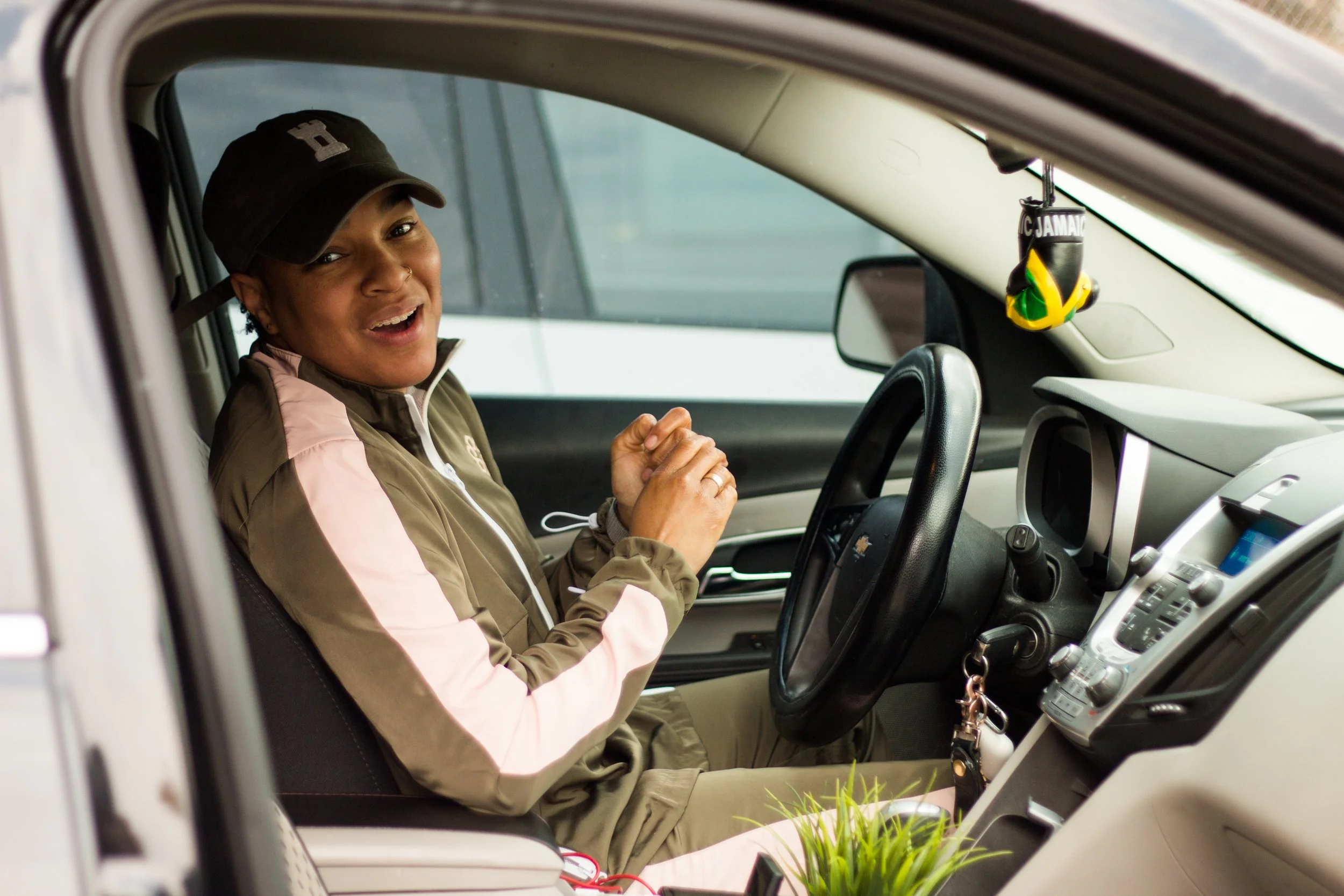Rookz Does Not Quit
An entrepreneur, A&R, public speaker, musician and, in her own words, "a problem solver," Kianna 'Rookz' Eastmond's story up until now is as emotionally demanding as it is humbly inspiring.
Kianna grew up in a traditional conservative Jamaican family in Scarborough, Canada - a 30-minute drive from downtown Toronto. Rookz would spend her summers working with her sister at her mom's hair salon. Her mother's attention to detail and searing focus led to her acquiring other businesses as well as property. Aged 14 she came out as queer, which led to her being kicked out of her family home in order to "scare her." Rookz decided not to go back, which meant dropping out of high school too.
The next five years were spent in the underground making ends meet. Her path altered when, in 2009, she got a job working security at The Blinds Inn, a well-known spot for its open mic events at the time. It's here that she heard her first sounds of the music industry, meeting the likes of Kim Davis, Leila Dey & Tory Lanez.
Perhaps more importantly it was here that Kianna linked up with KR Moore, an engineer who'd just graduated from the respected Trebas Institute and owned a small, "pop-down random place in a basement," studio.
The two clicked and he'd regularly invite Rookz to pass through. Wanting to repay the favour to KR, Kianna began to source artists to work at KR's studio. Leila Dey, known as PG at this point, was crushing the open mics - she won ten competitions in a row. So, it made sense when Rookz inquired about becoming her manager.
It turns out that Leila's situation was already patterned; she suggested Kiana approach fellow Torontonian Shi Wisdom with the offer of management. Shi accepted.
By Spring 2012 Shi Wisdom & Rookz had four records being spun on four different radio stations in Toronto with no label; Shi had a writing credit on 'R.I.P' with Rita Ora; Drake showed up to her release party. Everything was going great, "I really was picking out my Lamborghini," she laughs to me.
Wanting to capitalise on the good fortune, Kiana quit her high-paying job and used all the money she had to open Sandbox Studios with KR Moore in 2012 (originally called The Lab).
The idea was to record Shi's album, and also bring in local talent to record in the space and help develop them as artists. This wasn’t to Shi's liking and, soon after, their business relationship terminated in a rather unsavoury, public fashion.
Since then KR and Rookz have built Sandbox into one of the most well-known recording studios in Toronto. Sandbox has the strange dual reputation as being both a place where unpolished creatives take their first steps, as well as being a go-to spot to record in the city for the likes of Cardi B, Tory Lanez, Jadakiss, Little Simz, Ty Dolla $ign, Kid Ink, Tiffany Gouche & Iman Omari.
Now a regular presence on panel discussions, an owner of multiple companies and a burgeoning player in the self-motivation game, Rookz smiles with self-assured confidence and pride when we meet at Sandbox Studios.
We sit down - occasionally interrupted by her moulting jack russell Jada - to discuss the success of Sandbox, the common mistakes artists make and the state of Toronto's music industry.
———
I know one of your rules is to not wear sneakers worth more than $100 in the studio. What is it that makes Sandbox stand out?
I don't run Sandbox to make money. I run Sandbox to fulfil a purpose and a gap. If you come to Sandbox and you're like "I have two-grand, I want to do a full mixtape." And I see you don't have a website, and I see you have 10 Instagram followers, imma tell you no I don't want your two grand. Maybe take $1000 of it and build a brand, take $1000 of it and record... that's why I started a graphic design company as well, to integrate that in.
For celebrities, I think what makes it attractive is [they] know that I'm not a star struck kind of person. I treat everybody the same, which means that I don't care when Cardi B came and she said she didn't want anyone in the studio. I was cool to sit outside. I got to talk to Patientce, her manager, and as a result I built a stronger relationship with her team by remaining humble. The industry kind of knows that I deal with people proper. I think that's why I always get referrals from that end. And we deliver.
All these [famous] names had been to Sandbox. People kept coming up to me like "I can't wait until I'm good enough to come to Sandbox!" I thought that was so wild. Maybe by the 20th person who said it to me, I replied "why do you think you have to be good enough?" And they were like "Yo, because of all the celebrities who come through, I don't want to be trash..." I realised I was doing it all wrong. I was like, man, I'm putting out this perception that Sandbox is a place that you go to when you're already there. The skills and the development, what I've always felt like our strengths are, is that Sandbox is the place you go to when you haven't figured it out.
At Sandbox, we all wear Sandbox stuff. That's why we have the shoe rule. I just want my team to feel equal. Their value is so important to me. If they're not making people feel good, if they're not making people feel happy, then it trickles down. I always make sure I support them - somebody's running late so I'll cover the session. Last night North [Recording Engineer] was here until 1am while I was mopping, vacuuming, cleaning. They don't have to do chores. They watch me clean toilets! I think that helps us all realise that we're in this together. It's not like I'll go the club tonight and you can clean the toilet. For me, I believe so much in what they do and their value, I just want them to shine in what they do.
I know the value of all the pieces that come together in order to make things sustainable for an artist. When I realised that was happening, that's when I fell back on posting the celebrities, posting me as being this really successful or inaccessible person, who you can only talk to if you have money etc. That switched it up entirely for me. Now like, this is the playground. This is where you should come if you've never recorded before. Maybe you've been ripped off and couldn't get your files... this is the spot you come to when you want to be respected. I treat everybody like they're Cardi B. Everybody.
Treat people well on the way up, and they'll be more likely to look out for you. Same with the money: if they spend $1000 on their brand and the recording, they're more likely to blow.
That's legacy, right? I always tell people, especially my team, sometimes we don't charge people or we'll charge less. I don't mind taking an L, financially. I always tell people: we're taking the L, and the L's called Legacy.
When I get platforms like this it's important for me because I want the kids in London to know that, when they pull up to Toronto, Sandbox is there. It's only $25 per hour to rent the studio. People call it cheap, I don't call it cheap. I call it accessible.
You're currently renovating the space. What's the purpose behind that?
When we think about people like Ty Dolla $ign who can play a ton of instruments, or HER, or Charlotte Day Wilson: they can be anywhere because they understand music inside out. But I think there's an aesthetic that helps build confidence. So, when you walk in you're like "Yo, I'm not there yet..." I want you to walk in and think "I'm on my way there." I never want it to look like a million-dollar studio, but I also don't want it to look like you're in your friend's basement. I want you to feel good knowing you're in the same booth Tory Lanez or Ty Dolla Sign was in. So, what you have to do is have the same work ethic. [The renovations aren't] even done and Tory Lanez was here. He saw me and was like "Sis, I'm so proud of you." Just knowing where we all came from. I want it to be a space that's very in the middle.
I want to be a ten, in being an 8/10. I want to be the best 8/10. Also, I realised, from being in LA that really nice, huge studios can also be very intimidating. I've seen people who are lit at making music, great singers, go into a $1,000,000 studio and just croak. Because there's such a high expectation to deliver. I really never want people to feel like that when they're at Sandbox. I just want them to feel comfortable.
All those things to me, when I chose this spot, was about the customer experience from beginning to end. I want people to be proud when they come here. Proud to collaborate, proud to let people know they work out of Sandbox. But never feel intimidated or like they're fronting. "Yo I'm inside Revolution!" Why are you there? You have 200 followers. Save your money.
I think it's fair to say you've had a lot of people talk shit about you over the years. You've always been the type to deal with mudslinging on the low, rather than airing receipts on the timeline. How do you build up your defences against the neigh-sayers?
I think because I came out as gay in high school. It was so hard. It's not like it is now. I came out as gay when nobody was gay... nobody was gay in media, especially not black and gay. There was no representation... for being gay, there was a lot of people that thought of a flamboyant guy. There wasn't really like imagery for a black female who performs gender in a particular way. Because I came out so early, I feel like I had learnt how to deal with people's ignorance and people's disrespect, really really early on. I developed the attitude that if you don't know me - I don't care.
[Years ago] I wouldn't have done an interview. I'd say "it's not about me, interview this person instead." But now I realise that it's so important to hear me speak about it on the business end. Because I know so many people who are just chucking away wondering if what they're doing is making any impact. I'm grateful to know that I am making impact.
You work in A&R and talent development. What mistakes do artists often make?
The number one thing in my consultation is: stop thinking outside of yourself. Ask why you want to do music. "I want to shift culture..." Are you Jesus?! Why do you think you can shift culture? Whether Jesus is real or not, I'm pretty sure every day he got up and walked. Years later you're a part of culture. In the moment, you're supposed to just be doing something over and over again. Artists are so obsessed with the end of [the process].
They're always trying to like "I'm only going to post three pictures with no face because that's what HER did." Yeah but HER's manager is Jeff, who's also Alicia Keys' manager. He has so much pull that it doesn't matter, HER was already signed to RCA. You have to understand the business behind it. You can't do what somebody else does. You have to do what genuinely works for you. Artists are so obsessed with things that are beyond their control. What's in your control is be consistent with how much music you put out, how often you write. I really don't like when people are like "I want to make great music." You never decide what great music is.
What people have to understand is that when you create songs, they are for people to experience in a moment. That's how they connect to it. You don't decide what is great music, or what is bad music. There's a song that you hate that someone else will cry listening to. You've just got to make music and put it out. I think that artists get in their own way. Do what's authentic to you because a lot of the pattern following is where people fail. One of the things I've learnt over the past five-years to be honest is that music has changed so much. It's not the music industry anymore it's the media industry.
Your brand is more important than your music, at any point in time. What I think people need to understand is your influence, and really tapping into your niche demographic. Who messes with you?
Tell the people a bit more about your current movements, what are you working on?
A lot of people have been asking me to help them build businesses recently. So, I'm launching a mentorship program and a YouTube series. I'll be putting videos out every Monday/ Wednesday/ Friday, as well as starting a mentorship programme called Locker Room. All my other businesses and companies are growing. I'm a partner at GrantGenie.ca. UNSGND is growing; Sandbox is growing. I'm really excited about the stuff Rookz is doing. Everything else is business. What really matters to me is being able to impact other people and help people heal.
